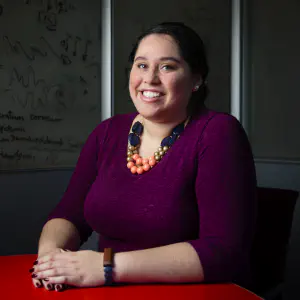Sarah Brown Wins NSF CAREER Award

Previous Data Science Initiative Postdoc at Brown University, Sarah Brown, who is a current Assistant Professor of Computer Science and director of the ML4STS Lab at the University of Rhode Island, won an NSF CAREER award!
Title: CAREER: Realizing Sociotechnical Machine Learning Through Modeling, Explanations, And Reflection
Every invention can bring with it new problems the inventor did not anticipate. Future technological advances can reduce the burden, but not resolve the problems. Technologists can improve the safety of their inventions by anticipating problems before they happen, during development, and even design to try to avoid them. The goal of this project is to build highly usable tools to provide technologists with the means to anticipate problems before they happen, during the design phase, to reduce the financial and social burden of errors. Different technologists use different types of tools, so the planned research will focus on tools for data scientists who build the algorithms that institutions use to aid decisions. These tools impact the outcomes of millions of Americans on a daily basis, such as who gets hired for a job. The result will be novel tools and guides that both practicing data scientists and data science educators need to anticipate and prevent unintended systemic errors in the real world.
Unanticipated systemic errors in real world automated decision-making systems often make it into real world systems because they are caused by implicit assumptions that the data scientists building the systems do not recognize. Additionally, data scientists’ toolboxes are overflowing with often hard-to-use tools, delaying adoption of new safety enhancing tools. The goal of this project is to reduce how many systemic errors make it into the real world. The first outcome of the project will be an understandable, highly reliable, AI assistant to help data scientists make more effective use of the many safety enhancing tools already available and new ones as they are invented. The second outcome will be conceptual tools that data scientists see the assumptions in their work. Throughout the project, the investigator will engage undergraduate and graduate students in the work via course-based research to increase the impact and ensure that the new tools are usable by future data scientists. The investigator will develop simulation-based AI safety curricula that helps students anticipate the potential impacts of AI before it is built. To increase the impact of the curricula, the investigator will collaborate with CS4RI (a state-based education program) to train K12 teachers to adapt and deliver the lessons in high schools statewide.
This award reflects NSF’s statutory mission and has been deemed worthy of support through evaluation using the Foundation’s intellectual merit and broader impacts review criteria.
Congratulations Sarah!